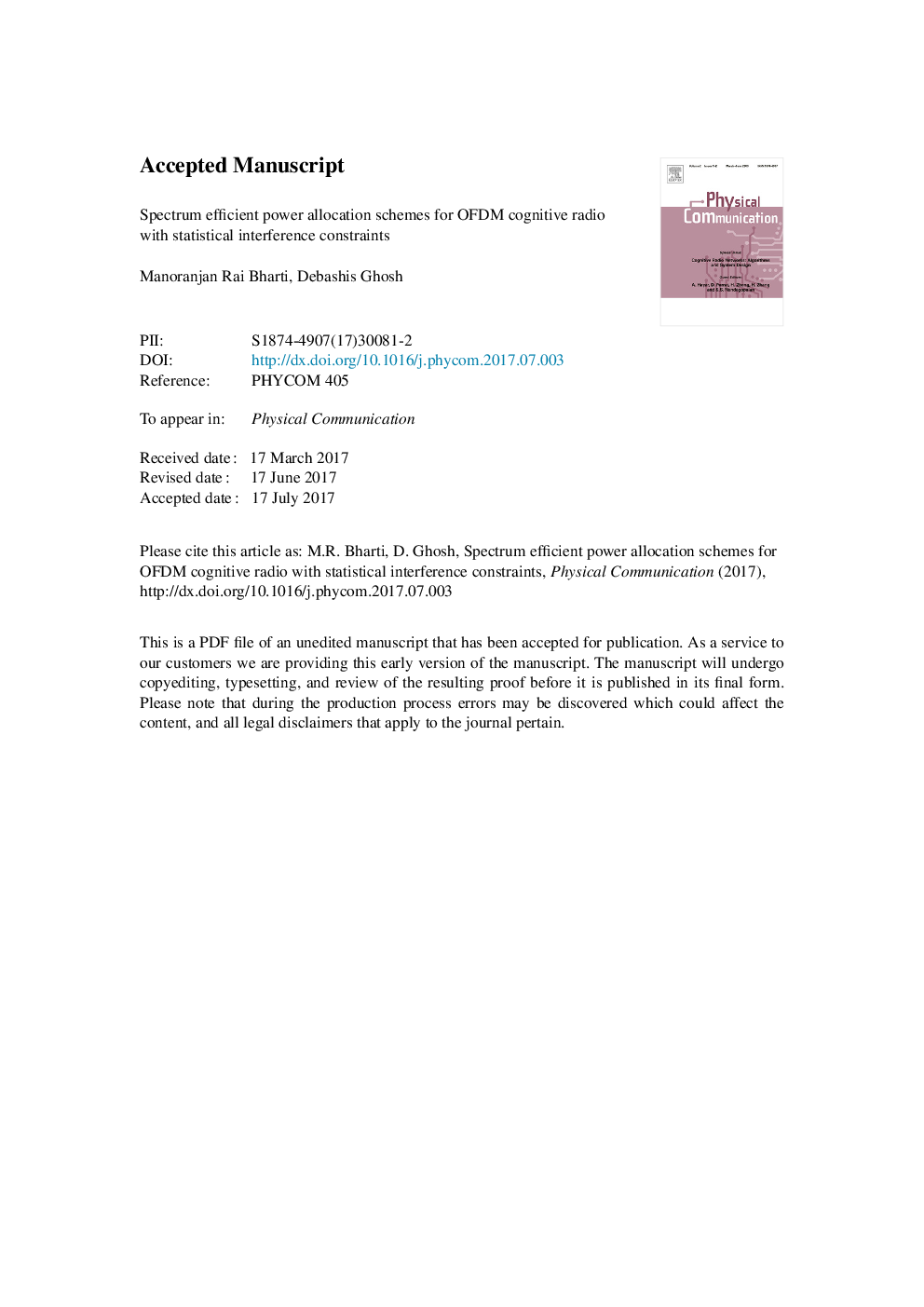| Article ID | Journal | Published Year | Pages | File Type |
|---|---|---|---|---|
| 4957612 | Physical Communication | 2017 | 45 Pages |
Abstract
In this paper, we study the power allocation problem for an orthogonal frequency division multiplexing (OFDM)-based cognitive radio (CR) system. In a departure from the conventional power allocation schemes available in the literature for OFDM-based CR, we propose power allocation schemes that are augmented with spectral shaping. Active interference cancellation (AIC) is an effective spectral shaping technique for OFDM-based systems. Therefore, in particular, we propose AIC-based optimal and suboptimal power allocation schemes that aim to maximize the downlink transmission capacity of an OFDM-based CR system operating opportunistically within the licensed primary users (PUs) radio spectrum in an overlay approach. Since the CR transmitter may not have the perfect knowledge about the instantaneous channel quality between itself and the active PUs, the interference constraints imposed by each of the PUs are met in a statistical sense. We also study an optimal power allocation scheme that is augmented with raised cosine (RC) windowing-based spectral shaping. For a given power budget at the CR transmitter and the prescribed statistical interference constraints by the PUs, we demonstrate that although the on-the-run computational complexity of the proposed AIC-based optimal power allocation scheme is relatively higher, it may yield better transmission rate for the CR user compared to the RC windowing-based power allocation scheme. Further, the AIC-based suboptimal scheme has the least on-the-run computational complexity, and still may deliver performance that is comparable to that of the RC windowing-based power allocation scheme. The presented simulation results also show that both the AIC-based as well as the RC windowing-based power allocation schemes lead to significantly higher transmission rates for the CR user compared to the conventional (without any spectral shaping) optimal power allocation scheme.
Related Topics
Physical Sciences and Engineering
Computer Science
Computer Networks and Communications
Authors
Manoranjan Rai Bharti, Debashis Ghosh,
